AHK Azerbaijan: Germany has good expertise to offer to rebuild Karabakh and Eastern Zangezur economic region
- 05 October, 2021
- 06:00
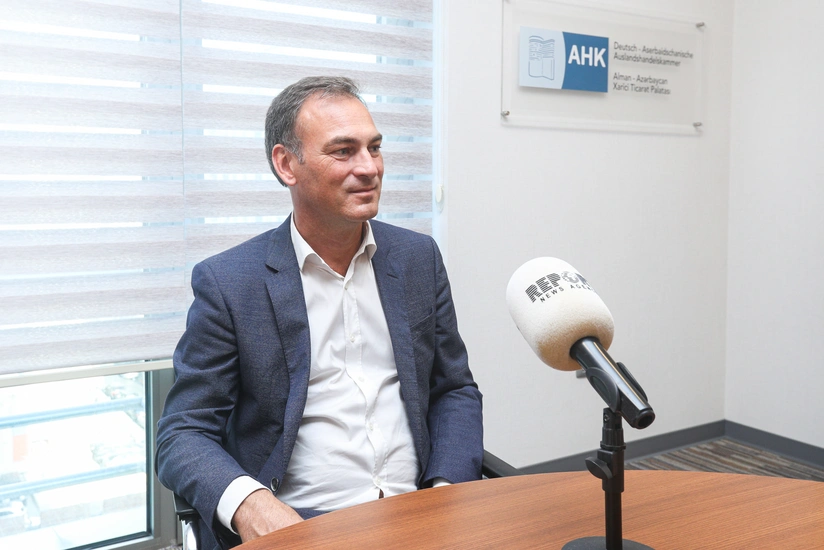
Report presents an interview with Executive Director of AHK Azerbaijan (German-Azerbaijani Chamber of Commerce) Tobias Baumann:
How does AHK Azerbaijan (German-Azerbaijani Chamber of Commerce) maintain the economic relationship between Azerbaijan and Germany?
The German-Azerbaijani Chamber of Commerce is the official representative of the German economy in Azerbaijan. AHK Azerbaijan provides information, business services, and support to companies in their market and business research since 2012. It is a membership organization: among our members, we have both German companies which are active in Azerbaijan and Azerbaijani companies that have an interest in Germany or in partnering with German companies. The Chamber supports the market interests of German and Azerbaijani companies with the market and customer-oriented services and offers a range of services from consulting on market entry and the procurement of cooperation partners to the organization of local business presence, as well as establishing productive public-private dialogue platforms. The members also benefit from networking and business events, as well as from B2B meetings, study visits, and delegation trips.
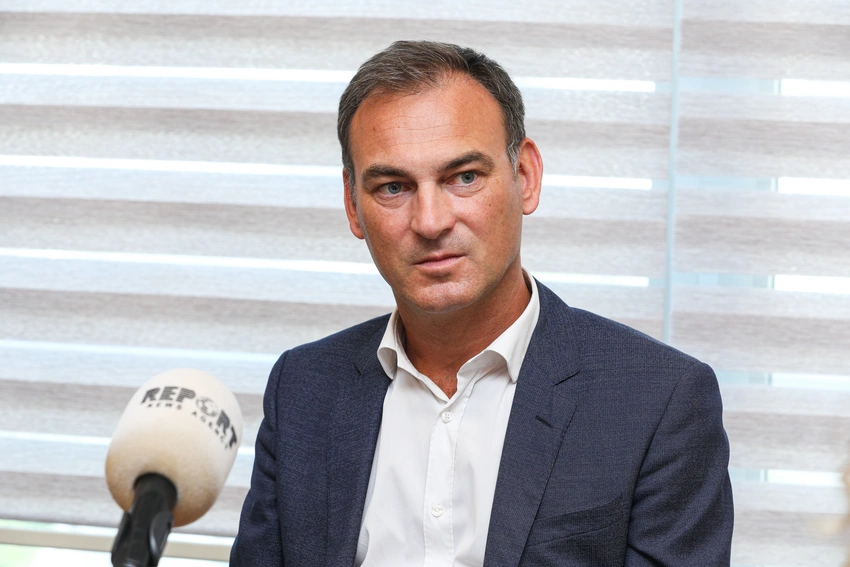
Which type of German companies are present in Azerbaijan and, vice versa, Azerbaijani companies in Germany? And, in which sectors are German companies mainly represented in Azerbaijan through AHK?
Azerbaijan is Germany’s main trade partner in the South Caucasus region, with a share of 65 percent in the overall trade turnover between Germany and the region. Moreover, it is the 9th largest supplier of crude oil to the country. German companies, in turn, stand for the best quality in the Azerbaijani market. The auto and auto parts, machinery and equipment, chemicals, and pharmaceuticals remain the largest group of imported goods from Germany to Azerbaijan. Understandably, the pandemic had a huge impact also on the volume of trade turnover over the past two years. Still, Germany remains the 5th largest trade partner for Azerbaijan.
Among our members, we have companies operating in different sectors: machinery, logistics and transport, consultancy, engineering and construction, and also the chemicals and pharmaceutical sector. Many well-known German brands have representative/branch offices in Azerbaijan. In fact, we do not have a single dominating sector here, so the membership is quite mixed, and that gives us a picture of the diversity of German companies.
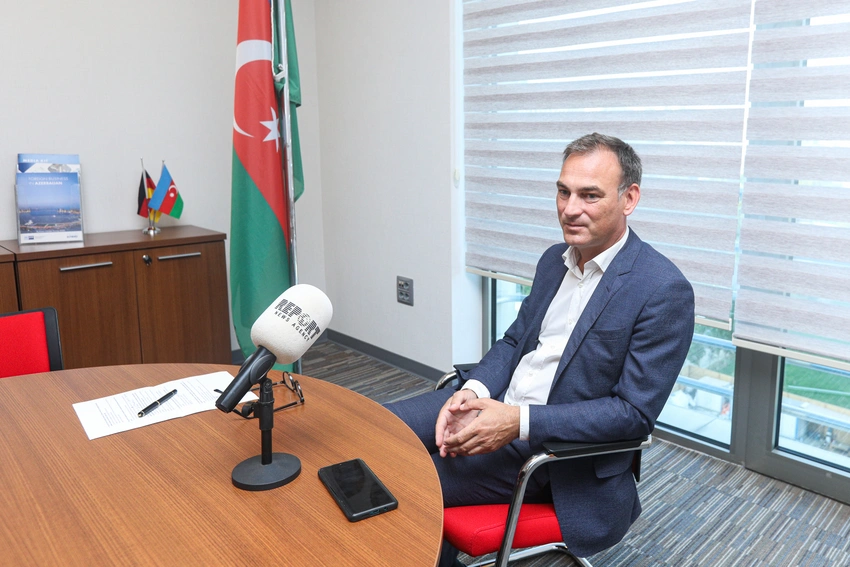
As far as you know, German companies are willing to invest in the restoration of Karabakh? What kind of expertise of German companies can be useful for the restoration, and are there any negotiations on this already happening with the Azerbaijani side?
First of all, for the government, these fundamental restoration and investment plans focusing on infrastructure and energy transition generate huge project finance outlays, with significant implications for the flow of international investment. By comparing the pictures from before 30 years and after the liberation, it is clear that in Karabakh, there is nothing left. It is clear that after the liberation all the infrastructure has to be reinstalled from the scratches. German companies express their interest in being a part of this enormous task of Azerbaijan to project, rebuild, and set up this region. Considering that it is a promising project with long-term perspectives demanding high technology, and modern and sustainable economic solutions, Germany has good expertise to offer here to rebuild the Karabakh and Eastern Zangezur economic region.
At the moment, there is no active negotiation going on about the cooperation in the liberated lands, but we see that several projects are already underway. We know that in Karabakh, there are already Israeli, Turkish, Italian, and other international companies involved in the projects. AHK member companies are also involved in the ongoing infrastructure, road and airport constructions and we have already established contacts with relevant authorities and bodies for further opportunities to engage in the upcoming projects.
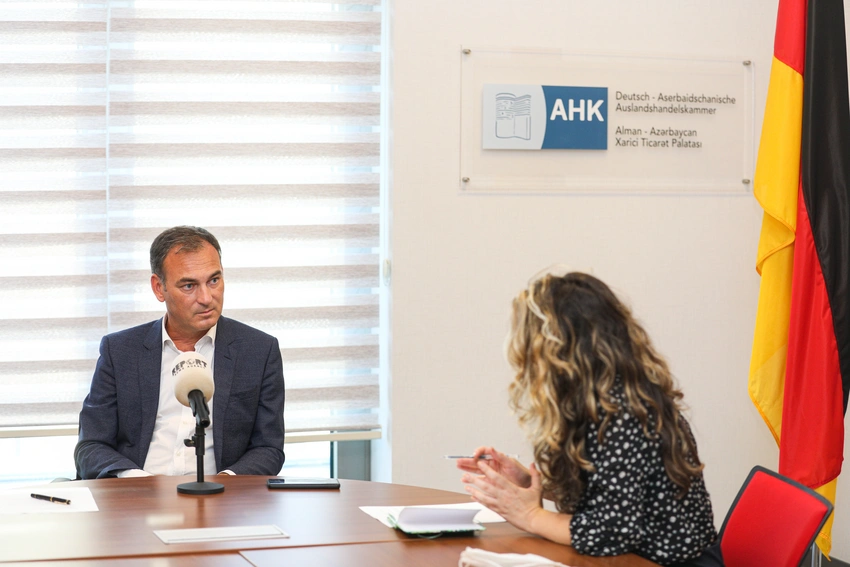
Can we expect any new joint projects with AZPROMO and the Azerbaijani Ministry of Economy?
We are always in dialogue, and when an opportunity emerges, we are always glad to work together with AZPROMO. We have well-established contacts with them when it comes to the organization of the delegation visits from/to Germany. In such cases, of course, we rely on AZPROMO as a partner to recommend possible participants for these delegation trips. We are also partnering up with them to attract Azerbaijani companies to the B2B meetings organized with their international peers.
We already hosted the Minister of Economy, Mikayil Jabbarov at one of our “AHK Impuls” events (dialogue format for the AHK members); he was very open to questions and to finding solutions for difficult issues and topics raised by our members, for which we are very grateful. And of course, we were glad to have him two times for the presentation of the AHK Business Climate Survey. As he also mentioned during his speech at the event last week, this is a good tradition that we aim to cherish and to promote together moving forward.
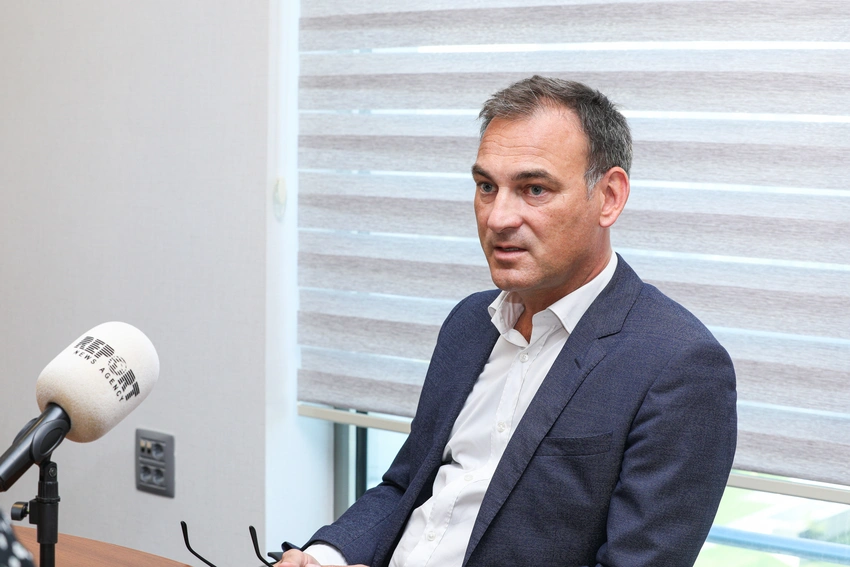
The "AHK Foreign Business in Azerbaijan Report" is a stand-alone annual publication of AHK Azerbaijan. What makes this report unique, and what are the most important advantages that it brings?
I believe the quality of the report is unique. To the best of my knowledge, it is so far the only publication in the country reflecting upon the perceptions of foreign businesses about the business and investment climate in Azerbaijan. We have a very profound analysis and interpretation of responses and to my mind also a very well structured design. In addition, we conduct some in-person interviews, which take place anonymously; this means it affords building trust, which has to be built up over the years. We did a great job in establishing this trust with the international community in this sense.
All in all, we think that this Report is a great tool introducing the first-hand feedback of international companies operating in the country to the relevant government representatives and setting the groundwork for public-private dialogue on the subject matter. I would like to take advantage of this opportunity to thank all businesses and experts who made valuable contributions to ensure this report remains a significant tool in assessing dynamics in the operation of foreign businesses in Azerbaijan. The report can be downloaded for free on our website www.ahk-baku.de.
